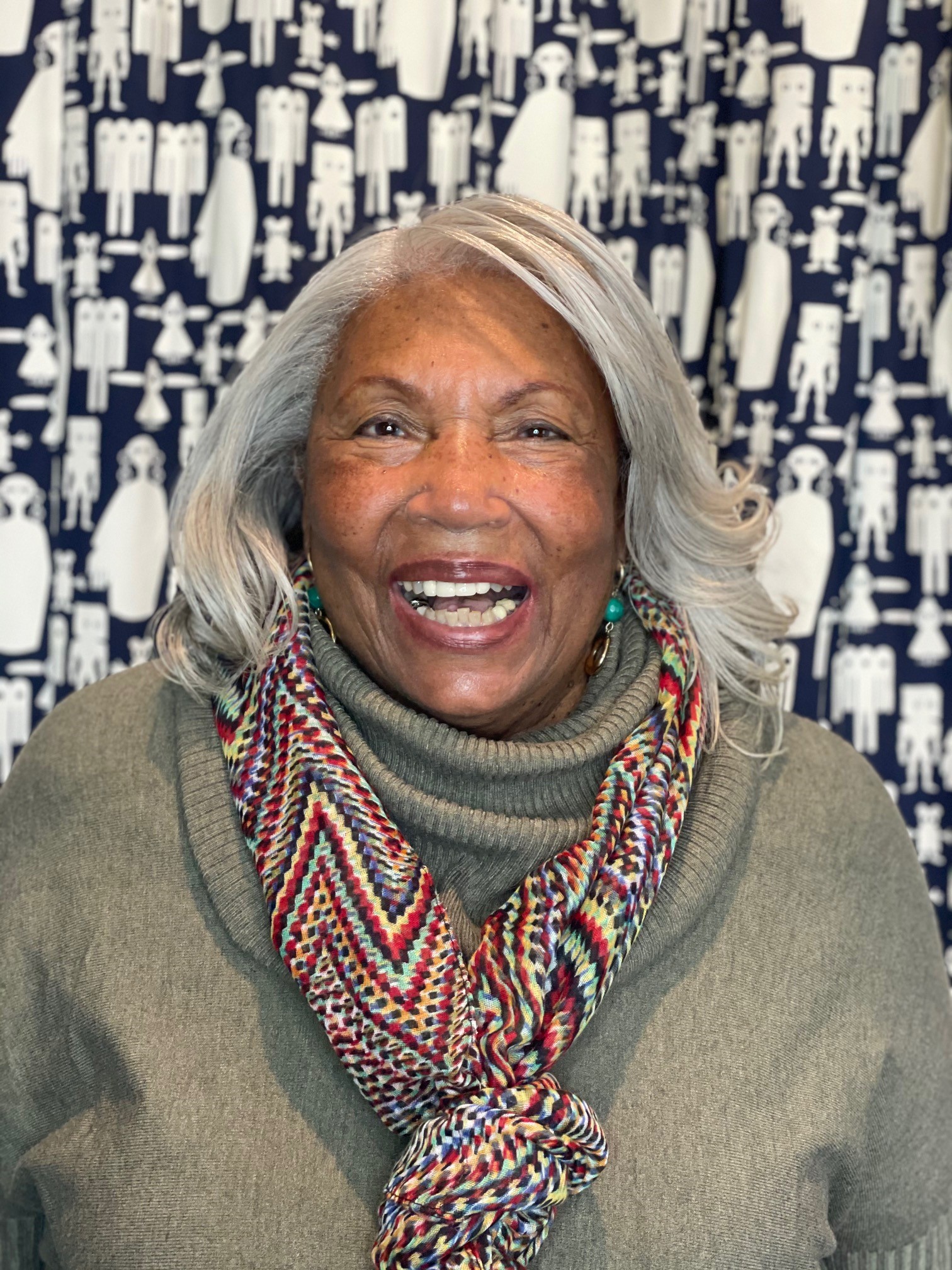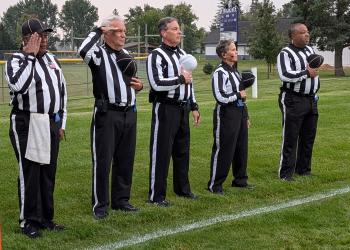Baker-Kent’s dream of service includes term with Board of Directors
Posted: Friday, April 1, 2022 - 10:02 AM
Dreaming was a daily activity for Lurline Baker-Kent and her siblings while growing up in Richmond, Calif. She had a brother that would routinely throw a blanket over their mother’s dining table and climb underneath to slip away into thoughts, visions and hopes for the future.
“When you grow up in the projects, dreaming was the one constant that you could always hang onto,” said Baker-Kent, now 83, and living in the Twin Cities.
While hopes and visions were far-ranging, for Baker-Kent, they always circled back to a life of community service. She was popular, ambitious, engaging and moved to serve others, especially those that encountered challenges. At age 12, the vision became clearer: She wanted to be become a probation officer.
It would be some time before that dream was achieved, but it was a part of many signature milestones for Baker-Kent in a journey of service that also included her appointment to serve on the Minnesota State High School League’s Board of Directors from 1976-1980. She was an appointee of the Minnesota Department of Education and was the first African American woman to serve on the board.
Baker-Kent’s robust background of diversity, service and vision were welcomed as the Board of Directors navigated the infancy of Title IX and the vast opportunities, and dreaming, it presented.
“I think I brought a sense of balance to the table,” Baker-Kent said. “As a board, we were in the midst of wonderful opportunities for change. To be a part of that was very rewarding. Serving on that board is a part of my most rewarding memories.”
Baker-Kent’s presence on the board brought a perspective from the challenges, and the rewards, she endured in her journey through high school, college, civil service and parenting.
Baker-Kent is a 1956 graduate of Richmond Union High School in Richmond, Calif., north of Oakland. Richmond Union was the setting for the 2005 film “Coach Carter.” In the film, based on a true story, Richmond boys basketball coach Ken Carter, played by Samuel L. Jackson, suspends the players from his undefeated team in 1999 because of poor academic performance.
The education and opportunity landscape, Baker-Kent said, was vastly different from her experience and that portrayed in the film. In her educational path, there was one elementary school. Those students then went to separate junior highs and then funneled back to one high school. At the time, the Standard Oil Company was the primary employer in Richmond, Calif.
“It was a blessing; rich or poor, you had the same opportunities as everyone else,” she said. “I had all sorts of activities to choose from. We had fencing, chess, Spanish, every club you could think of. And then there was bowling, archery, golf and every other activity you can imagine, too. I loved it. I loved it because we were exposed to diversity and we learned to get along despite the challenges of life. Other schools and cities across the country didn’t have that same luxury. I’m amazed when I think about that now. We were a very progressive school district.”
Baker-Kent chuckles when she recalls that she wasn’t a chess player. She admits that she enjoyed the action from volleyball, baseball, softball and wrestling. In addition to being a skilled archer and sports official, Baker-Kent said she was the best wrestler in the school.
“I did the rough stuff,” she said of playing physical athletics. “No one, not even the boys, could take me at wrestling.
“Being able to have these opportunities and to be able to participate is a blessing more than you can imagine. It prepared me for the future of the world. I felt comfortable in every situation because I was exposed to so much. Being a black kid, I was accepted by all. There was this white sorority and they invited me to join. I declined because one of the initiation process things was to wash my hair with eggs. With my hair, it would stand right up and stay there.”
Baker-Kent recalls, though, through urban spread, the dynamics of a singular high school began to fade as families moved to suburbs.
Baker-Kent went to college in Richmond and was enrolled in a New Careers program. She then married a man that was in the military. Together, they lived in Fairbanks, Alaska, Japan, Marquette, Mich., and then, the city that she says brought her the greatest blessing: Duluth, Minn.
“We had read that Duluth had an international airport,” Baker-Kent said. “Well, that wasn’t quite right! I believe the Good Lord wanted to make my dream a reality and he picked Duluth, Minnesota, for it to happen.”
Baker-Kent enrolled at the College of St. Scholastica where she would get a degree in Elementary Education. While in Duluth, Baker-Kent applied, and ultimately received, a job with Oreck’s Department Store in downtown. The historic downtown icon had opened in 1909. When she applied for a sales position, Baker-Kent was asked if she would wear silk gloves while she worked. She said, no, that she would not. Baker-Kent was then told the store could not use her because of her lack of sales experience.
As she was about to leave the store, Baker-Kent made an instant decision. She pivoted, approached the supervisor and confidently proclaimed that she could sell anything. The supervisor reconsidered and Baker-Kent was assigned to the main floor in a highly visible department.
“I was a hit with all of those rich women,” Baker-Kent proclaimed. “We got along wonderfully and they became my friends. I was even asked, and accepted, to be woman of the year. I was the only poor person ever to be selected the woman of the year in Duluth. Isn’t that something!”
She graduated cum laude from St. Scholastica, fulfilled her dream of becoming a probation officer and then was elected to the Duluth School Board and served one term in representing the largest district in the city. She was also serving as a Job Development Specialist at Arrowhead Regional Corrections in Duluth.
“I used to drive inmates from Stillwater to Duluth in a car all by myself,” Baker-Kent said. “I would get to know them, get through the guts of the challenges they were facing in society. It’s all about developing relationships. When I was younger, I use to physically fight kids. Maybe that was because I didn’t like myself very much. Maybe that is why I became a probation officer because I wanted to fix things.”
Baker-Kent eagerly accepted the appointment to serve on the League’s Board of Directors in 1976.
With many topics on the board table that included the early years of opportunities that arose from the passage of Title IX, bylaw language around foreign exchange students and the growth of Fine Arts, Baker-Kent navigated her way through the proceedings and became a strong, accepted and trusted voice. An additional thrill was becoming the first female board member to participate in the trophy presentation during the League’s famed Boys Hockey State Tournament.
“It was an exciting time for me to serve,” she said. “I understood the process and the dynamics of working on behalf of the member schools and wanting to ensure equal rights. (Former Associate Director) Dorothy McIntyre did an incredible job of strategizing the implementation of Title IX. Dorothy, I give her a lot of accolades for being forward-thinking and supportive of opportunities for all.
“It was also an amazing time for the arts. It is amazing to me when schools want to cut music and the arts. Whether it is music on stage, acting in the play or creating a special piece of art, you feel like you belong. Every schools needs to have something that speaks to students. You need activities in the school, before, during and after school. Schools need to be the last place a kid wants to run from.”
In 1982, Baker-Kent was appointed Assistant Commissioner of the Minnesota Department of Corrections.
Long since retired, Baker-Kent enjoys following League activities and programming. She is also keenly aware of the first half-century of Title IX.
“Title IX has to exist,” she said. “Without it, without racial equality, you won’t get Title IX to work. It’s been a joy to see it at work and more work is to be done. Can you imagine a person like me, at 83, and all I’ve seen over the years? I was raised in the projects and had a mom and dad that were victims of racism. But, we made it through, graduated high school and have achieved success and contributed to society. It’s truly been an incredible journey.”

Lurline Baker Kent





